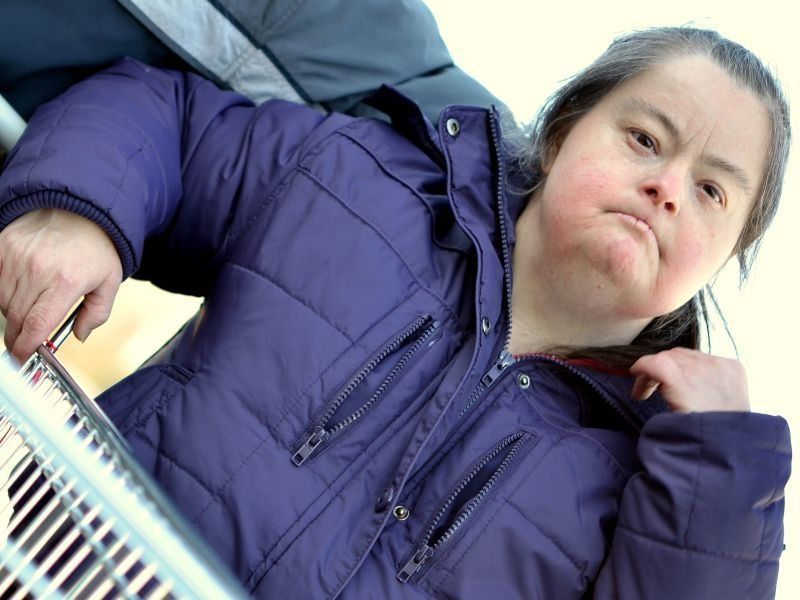THURSDAY, Feb. 11, 2021 (HealthDay News) — Certain genetic factors in people with Down syndrome may increase their COVID-19 risks.
Previous studies have found that people with Down syndrome are 10 times more likely to die from COVID-19, and experts have said they should be among those given priority for vaccination.
In this new study, Spanish researchers examined genetic differences in people with Down syndrome that might affect their risk of infection and severe illness from SARS-CoV-2, the virus that causes COVID-19.
While each cell expresses, or turns on, only a fraction of its genes, researchers found that people with Down syndrome have 60% higher expression of a gene called TMPRSS2. It turns on an enzyme that plays a key role in helping SARS-CoV-2 enter human cells.
The gene is located on chromosome 21. People with Down syndrome have an extra full or partial copy of chromosome 21, the study authors noted.
The researchers also found that people with Down syndrome have higher expression of CXCL10, a gene that can trigger a sequence of events that lead to out-of-control inflammation. That causes the body’s immune system to attack its own lung cells.
This is called a cytokine storm and is one of the main causes of hospitalization and death in COVID-19 patients. This higher expression of CXCL10 may make people with Down syndrome more susceptible to complications such as lung fibrosis, the findings suggest.
The researchers also noted that people with Down syndrome may be susceptible to bacterial infections after they’ve had COVID-19.
Another finding was that people with Down syndrome have signs of an overactivated interferon response, an important defense that prevents viral replication within cells.
Two of the genes linked to interferon response are found on chromosome 21, according to the report recently published in Scientific Reports.
“On balance, we consider that individuals with Down syndrome who are older than 40 or have significant comorbidities are highly medically vulnerable, both at the stage of infection and for the prognosis once the cytokine storms begins,” study co-author Mara Dierssen of the Center for Genomic Regulation in Barcelona, Spain, said in a center news release.
More information
The U.S. National Institute of Child Health and Human Development has more on Down syndrome.
SOURCE: Center for Genomic Regulation, news release, Feb. 8, 2021
Copyright © 2026 HealthDay. All rights reserved.

